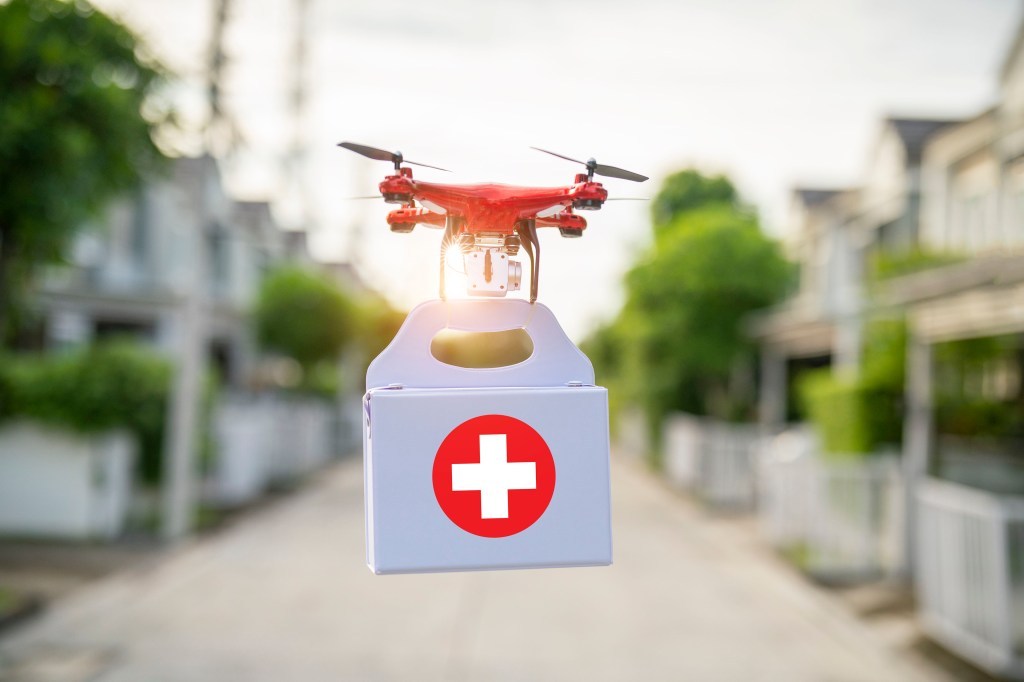An exceedingly awkward moment occurred on The View last week when two of the hosts, Sunny Hostin and Ana Navarro, unexpectedly tested positive for COVID-19 while the show was live on the air. Those results later turned out to be false positives, but at the time, the kerfuffle was enough to derail the plans for the day—and for Vice President Kamala Harris‘s scheduled visit to switch to a virtual call.
“Since that show ended, however, this is the update—we were all given numerous, numerous COVID tests,” host Joy Behar said on the September 27, 2021, episode of The View. “Throughout the weekend this was happening, too. And I am thrilled to report that Sunny and Ana’s Friday results turned out to be false positives and everyone is safe, healthy, and COVID-free.” Both hosts who (falsely) tested positive were fully vaccinated, which Hostin said brought her some comfort even when she thought she may have had the virus.
It was a messy situation and one that involved revealing people’s health information to the public in a particularly vulnerable moment. The supposedly positive test results had ramifications for the hosts’ families and personal lives, they explained. But the truth is that false-positive results are not uncommon, especially with rapid COVID-19 tests. Thankfully, though, most don’t happen on live TV.
So, how common are false-positive COVID-19 results? First, it depends on the type of test you’re taking. With tests that rely on polymerase chain reaction (PCR) technology to provide results, the results are generally considered to be more reliable. Although PCR tests are still the gold standard for diagnosing a COVID-19 infection, they can be uncomfortable and take a few hours to days to provide results, Yale Medicine explains. But rapid tests (typically antigen tests) are relatively cheap and can deliver your results within 15 to 30 minutes.
In a Cochrane review published in March involving 64 studies and more than 24,000 testing samples, the researchers found that the potential for false-positive and negative results from a rapid COVID-19 test varied widely. The accuracy and specificity of results depended on whether or not the person had symptoms, how long they’d had the potential infection, and the specific brand of test they were using.
Of the studies the researchers looked at, 58 evaluated rapid antigen tests. Their results showed that the tests were generally more reliable when someone had noticeable symptoms and during the first week of symptoms. On average, rapid antigen tests correctly identified those who had COVID-19 infections in 72% of people with symptoms and 58% of people without symptoms, Cochrane explains. These tests also correctly ruled out people who did not have COVID-19 infections in about 99% of cases, on average.
The sensitivity of the tests also depends on the overall prevalence of the virus in the pool of participants you’re testing. For instance, at an estimated 5% prevalence, between one in 10 and one in six positive results would be false positives even for the most sensitive rapid antigen tests when used in symptomatic people. On the other end of the spectrum, at 0.5% and in asymptomatic people, between seven in 10 and nine in 10 positive results would be false positives. (Keep in mind that, in communities where the prevalence of the virus is high, there are fewer consequences for false-positive results and higher consequences for missed positive cases.)
Because rapid tests are not 100% accurate, it’s standard procedure to get confirmation of a potentially false result with a PCR test, the Centers for Disease Control and Prevention (CDC) explain. That means that people who don’t have symptoms of the coronavirus should get a PCR test to confirm a positive rapid test result. And for people who do have symptoms, they should get a confirmation from a PCR test for a negative result with a rapid test, the CDC says.
We obviously don’t know the full story of what happened at The View or exactly what type of tests they were using, but it’s clear that false-positive test results can and do happen—and they’re more likely in some situations than others. Frequent testing is a crucial part of any coronavirus prevention strategy no matter your vaccination status, so be prepared for the possibility of needing to be tested again (and again) to confirm the results sometimes.
Related:
- What Reba McEntire Thought Was COVID-19 Turned Out to Be a Totally Different Viral Illness
- You Need a COVID-19 Test After an Exposure—Even If You’re Vaccinated and Asymptomatic
- 9 FDA-Authorized COVID-19 Tests You Can Take at Home
Note: This article have been indexed to our site. We do not claim ownership or copyright of any of the content above. To see the article at original source Click Here













